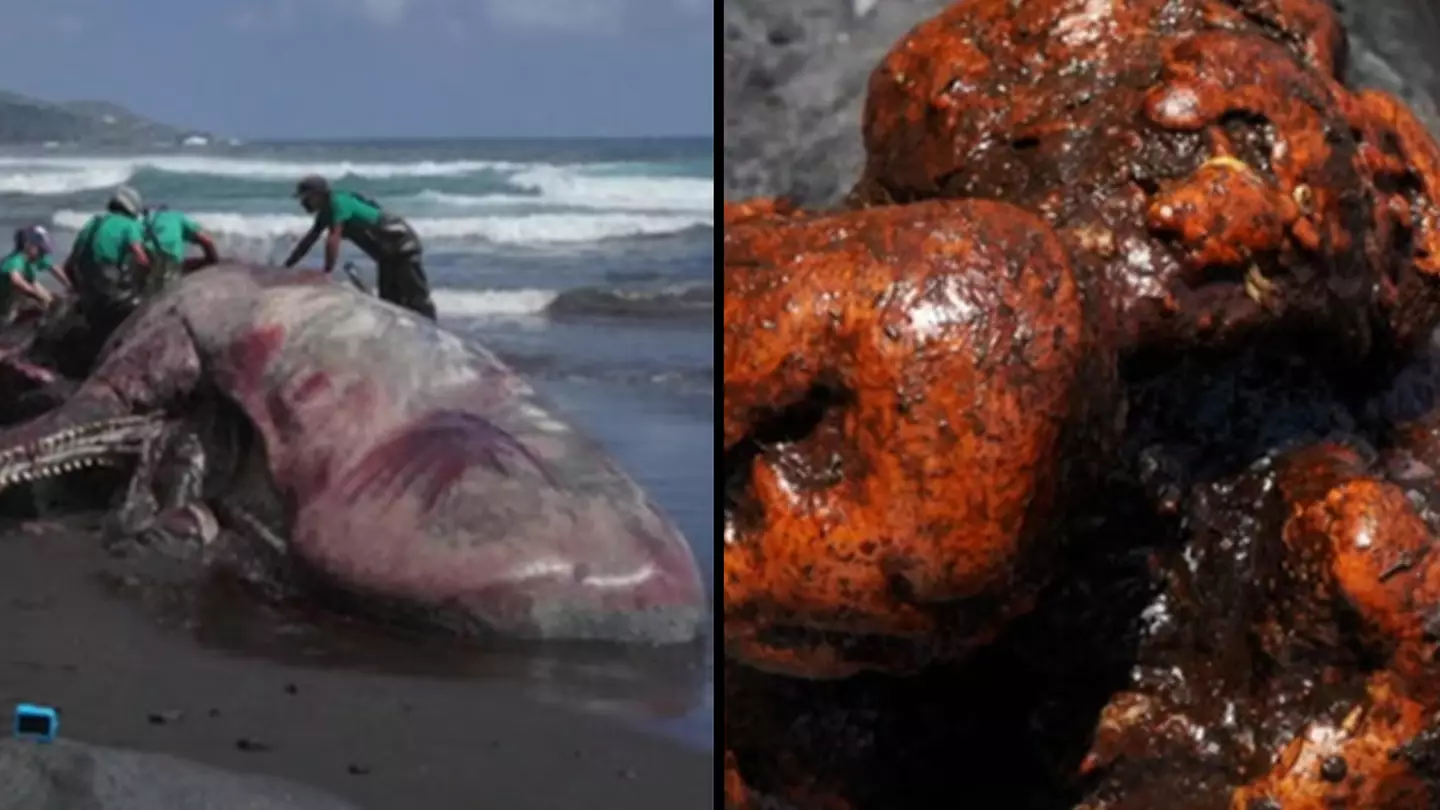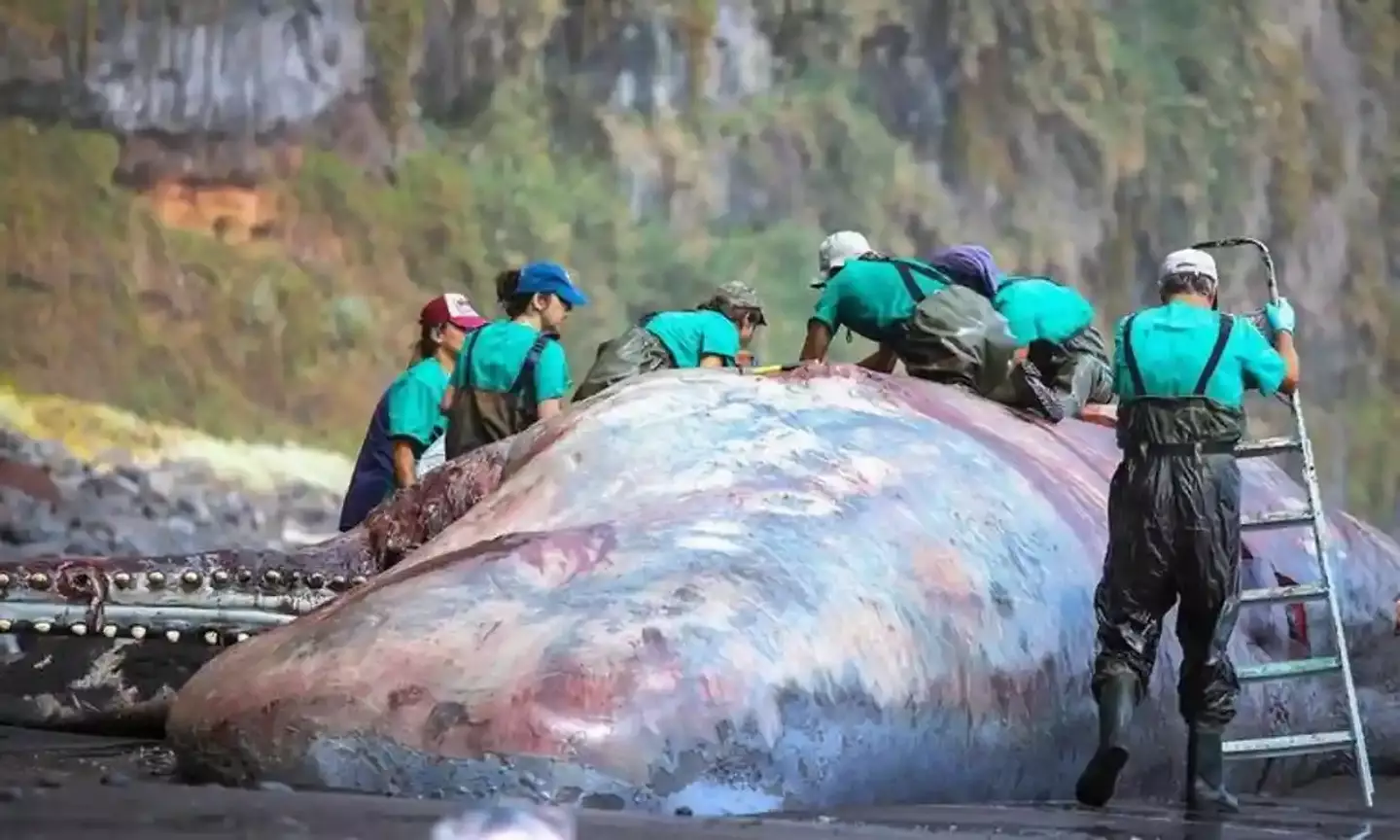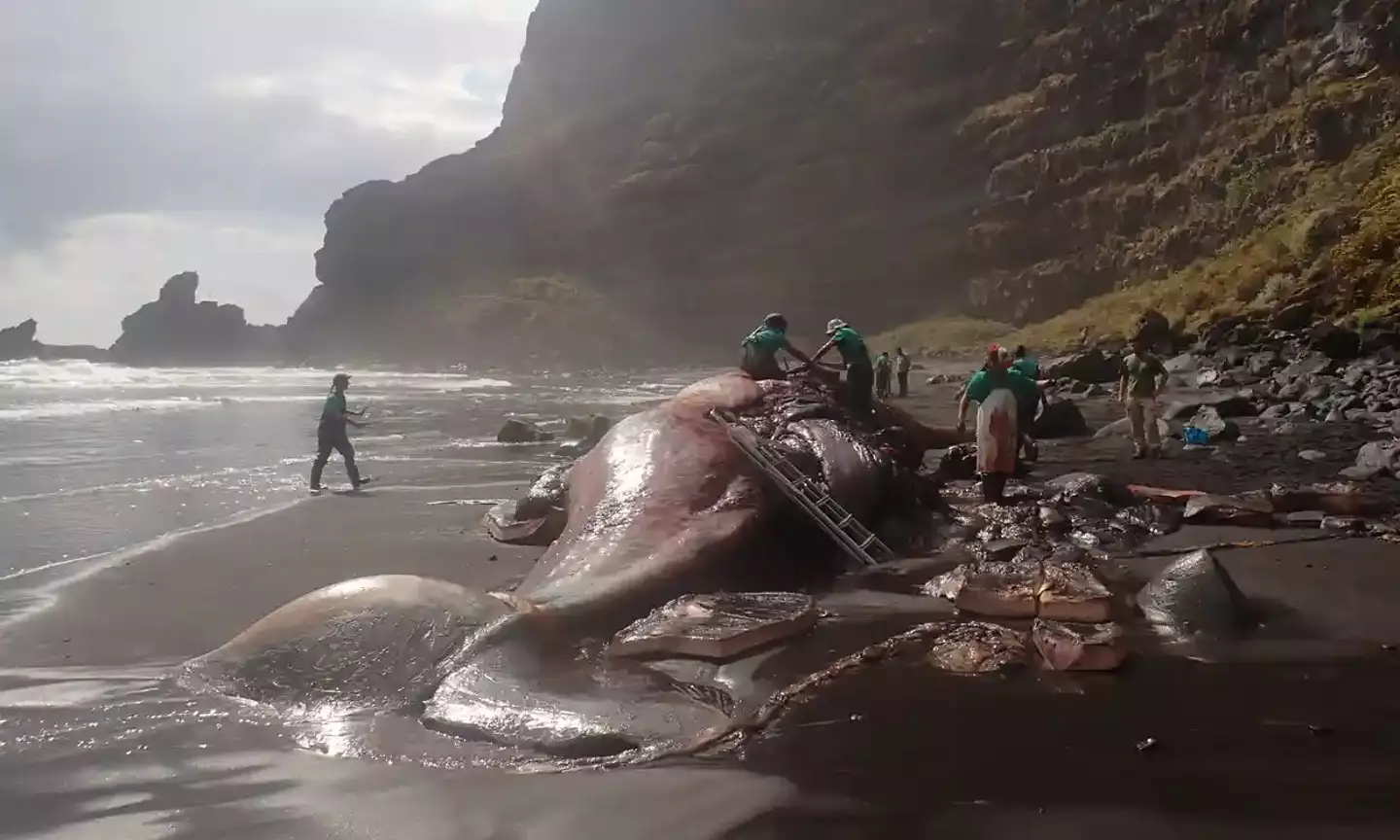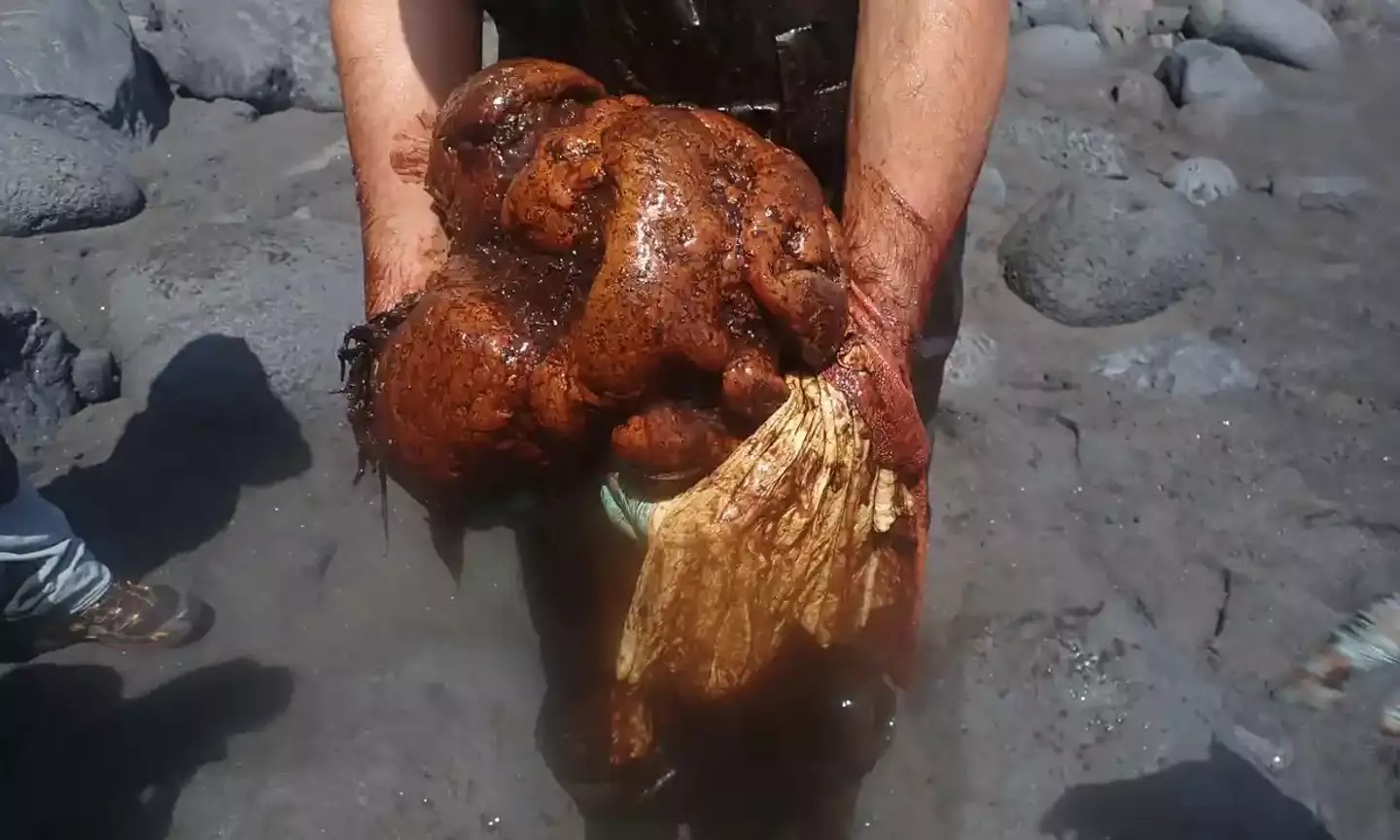
Who would have thought that a dead washed up whale on a beach in the Canary Island of La Palma would have a hefty fortune hidden in its entrails?
Well, they say one man's trash is another man's treasure but, in this case, it's a fortune as scientists have found 'floating gold' worth a staggering £425,000 inside of the enormous carcass.
While it was a slightly more taxing post-mortem - it's clear the hard work paid off considering just how much value was hidden away in the whale, albeit it a slightly odd location.
Antonio Fernández Rodríguez, head of the institute of animal health and food security at the University of Las Palmas, was eager to figure out the cause of death of the sperm whale.
Advert

While authorities were, at first, not entirely sure how the 13-metre-long whale washed on Nogales beach last month, Rodríguez soon cracked the mystery.
After suspecting a problem with the mammal's digestion, the expert had a closer look into its colon.
And, to his surprise, Rodríguez found a fairly hard object stuck to part of the whale's intestines.
A few graphic mental images there - I know.
"What I took out was a stone about 50-60cm in diameter weighing 9.5kg," he said.
"When I dissected and removed the stone I turned around and everyone on the beach looked at me in surprise, but for me at that moment I understood where the origin of the infection was coming from."

Rodríguez continued: "The waves were washing over the whale.
"Everyone was watching when I returned to the beach but they didn’t know that what I had in my hands was ambergris."
If you're not in the know, ambergris, he explained, is an extremely rare substance - so rare that it is widely referred to as 'floating gold' given its use for perfumers all around the world for centuries now.
Dubbed somewhat of a prized possession for those in the perfume field - the 9.5 kg lump Rodríguez had discovered was worth about €500,000 (around £425,000).
Not too shabby at all, especially after poking about in the depths of a whale's colon.
And now, for the answer of the question you're all wondering - what on earth does ambergris smell like?

Well, believe it or not, the substance - which is produced from the built-up remains of undigested squid and cuttlefish that has been vomited out - has a woody scent.
Think sandalwood - but from the sea.
The researcher found that it was sepsis caused by the ambergris that eventually killed the whale.
The institute is now looking for a buyer for the 'floating gold' in the hopes that the funds would go towards helping the victims of the La Palma volcano eruption in 2021 which caused over €800 million (around £685 million) in damage..
"The law is different in every country," Rodríguez said. "In our case, I hope the money will go to the island of La Palma, where the whale ran aground and died."
Topics: Animals, Money, Science, Weird, World News